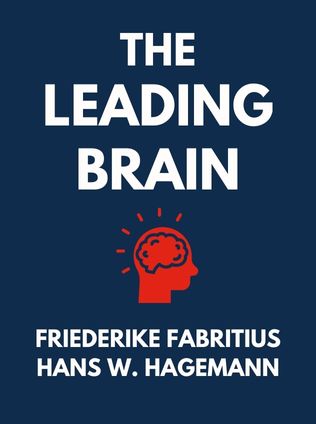
The Leading Brain
Powerful Science-Based Strategies for Achieving Peak Performance
By Friederike Fabritius, Hans W. Hagemann
Published 05/2017
About the Author
Friederike Fabritius, MS, is a leading expert in the emerging field of neuroleadership. Her academic background includes training at the prestigious Max Planck Institute for Brain Research, and she has applied her expertise in neuroscience in the business world as an alumna of McKinsey & Co. Fabritius combines these two domains to assist top executives in Fortune 500 companies in reaching their peak performance.
Hans W. Hagemann, PhD, is the managing partner and co-founder of the Munich Leadership Group, a global leadership consultancy firm. With a doctorate in chemistry and extensive experience in leadership and innovation, Hagemann has led seminars, coaching sessions, and workshops with top executives in over 40 countries. Together, Fabritius and Hagemann have distilled their extensive knowledge into The Leading Brain, providing science-based strategies for achieving peak performance.
Main Idea
The Leading Brain delves into the intricate workings of the human brain and presents powerful, scientifically-backed strategies to help individuals and teams achieve their highest potential. The authors argue that effective leadership and peak performance are not just about mastering soft skills but are deeply rooted in understanding and leveraging the brain's neurochemistry. By tapping into the latest neuroscience research, Fabritius and Hagemann provide actionable insights for sharpening focus, enhancing learning, improving decision-making, regulating emotions, and building stronger teams.
Table of Contents
- Reaching Your Peak
- Find Your Sweet Spot
- Regulate Your Emotions
- Sharpen Your Focus
- Changing Your Brain
- Manage Habits
- Unleash Your Unconscious
- Building Dream Teams
- Thrive on Diversity
- Cultivate Trust
- Develop the Team of the Future
Reaching Your Peak
Find Your Sweet Spot
Achieving peak performance requires finding the optimal level of arousal where focus and productivity are maximized. This concept, rooted in the Yerkes-Dodson Law, suggests that too little arousal leads to boredom while too much results in stress and panic. The authors identify three key neurotransmitters—dopamine, noradrenaline, and acetylcholine—as the "DNA of Peak Performance."
Dopamine, known as the novelty neurotransmitter, is crucial for memory updating and focus. It's most effective when a task is new and exciting, explaining why starting a new project can be thrilling but maintaining that excitement can be challenging over time. Noradrenaline helps you respond quickly to threats and is optimal when you're slightly overchallenged. Acetylcholine drives the extraordinary focus required for peak performance, but adults must consciously activate it through attention, exercise, or exposure to new stimuli.
Understanding your position on the performance curve—whether you're a right-side performer thriving under pressure or a left-side performer needing less stimulation—allows you to tailor your environment for peak performance. However, it's important to balance these periods of peak performance with adequate rest to avoid burnout.
Sign up for FREE and get access to 1,400+ books summaries.
You May Also Like
The Subtle Art of Not Giving a F*ck
A Counterintuitive Approach to Living a Good Life
By Mark MansonRich Dad Poor Dad
What the Rich Teach Their Kids About Money - That the Poor and Middle Class Do Not!
By Robert T. KiyosakiHow To Win Friends and Influence People
The All-Time Classic Manual Of People Skills
By Dale CarnegieQuiet: The Power of Introverts
The Power of Introverts in a World That Can't Stop Talking
By Susan Cain



















